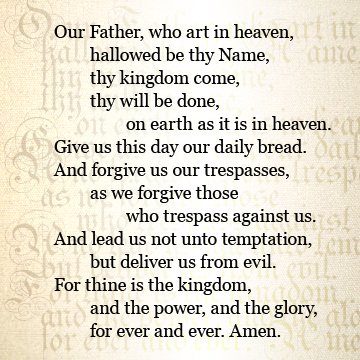The question came up during a recent seminar on religion, spirituality and health: If God is omnipresent, what prevents a person from realizing that sacred presence in this moment? In any moment?
I teach mindfulness -- a practice of moment-to-moment, non-judging awareness that all people can cultivate to more fully participate in their lives, improve health and reduce stress. In this work, I have found that people can sometimes become so stressed out -- too distracted, too agitated, too hurried and worried -- that even the consolation and refuge of their spiritual life becomes difficult to access.
Our lives only happen in the present moment. What, in this moment, is blocking us from realizing the sacred?
Stress, at least in part, could be the answer. Stress activates intense feedback loops, of critical and judgmental thinking, of subjective feelings of isolation and separation, and intense physical sensations that reflect bodily preparation for “fight or flight.”
But even in the midst of this storm of distress, a person will likely notice that he or she feels stressed out. This noticing, this non-cognitive awareness that simply and accurately reflects what is happening here and now, the quality of “knowing” before the thinking and reacting that follows, is often called mindfulness.
Mindfulness is a basic human capacity and possibility. It is a practice that can be developed, a way of being in the world that encourages more conscious presence in all of the moments of daily life, including the most challenging ones.
And people of faith, Christian leaders, can turn to a familiar, sustaining practice to harness the power of present-moment awareness: prayer.
What, in this moment, is blocking you from realizing the sacred?
Learn to trust your immediate, mindful awareness of inner feelings of aversion, and the call of the ego to fight a particular situation. And then, in that moment, choose to escape the distortions of ego talk. Choose to practice surrender. Surrender to this moment. Surrender in this moment.
By “surrender” I do not mean you must become passive when there is something to do to improve a situation. Instead, I am pointing to the many times when there is literally nothing else to be done, yet the inner voices and judges are screaming in protest and demanding more action. I am pointing to the moments when it is best to sit with an unpleasant situation, to sit with sadness or pain or anger.
Offer a prayer of surrender. Turn to the Lord’s Prayer: “Thy will be done, on earth as it is in heaven.” Sit comfortably. Close your eyes. Breathe in and out, relaxing and receiving the breath sensations. Repeat the prayer, surrender to it. “Thy will be done, on earth as it is in heaven.”
Following the prayer, pay attention and trust your own natural mindfulness to notice accurately what follows next -- in your inner life and in the outer world.
Noticing mindfully, allowing, surrendering -- these are practices that are always available. This practice and this prayer are always a possibility in moments of stress or isolation or pain.
Learning to be more mindful is empowering. It is easier than you may think. You can practice, at any time, deliberately taking the stance of curiosity and open attention to the flow of your thoughts and feelings rather than fighting or following them. That non-judgmental attention allows you to begin to disentangle from the trap of the worried thoughts and the ego talk.
What, in this moment, is blocking you from realizing the sacred?
Noticing an inner struggle or resistance to this moment, you can choose to intentionally surrender to the way things are in this moment. You can choose not to support the ego’s demands to change or make war on conditions in this moment. You can choose to soften and open, with curiosity and wonder. Allow yourself and this moment to just be, and let your mind, body and spirit receive and experience the fullness of God’s presence and grace.
“Thy will be done, on earth as it is in heaven.”








